Standing in the dock at Southwark Crown Court this week was Nasser Al-Gherainiq who was convicted of two counts of attempted rape which left his victim ‘frozen with fear’. Her words.
The appearance of this foreign national in court – a scene replicated up and down the country – has become frighteningly common, with foreign offenders now representing nearly one in eight (12 per cent) prisoners in our overcrowded jails.
But surely few have a story quite like 27-year-old Al-Gherainiq who was, until his arrest at least, a camel herder from a conservative Bedouin tribe in the deserts of Qatar.
According to his barrister, he had little contact with the outside world or any experience of modern or urban life before his arrival in the UK to receive treatment for a rare heart condition at a private health unit linked to the renowned Royal Brompton Hospital in south-west London.
Al-Gherainiq, dressed in standard prison ‘greys’ (grey sweatshirt, grey trousers), was effectively from a different age, in other words.
It was the reason why, when asked how he was going to plead, Al-Gherainiq, who spoke no English, answered in Arabic and an interpreter next to him then replied: ‘Not guilty.’
Profound cultural differences, the defence argued, meant he did not know how to interact with women. He was ‘equivalent to an immature and inexperienced adolescent’ who ‘completely failed to understand’ his victim’s ‘true feelings’.
Put bluntly, they argued that he did not know the woman had not consented to sex when he pulled her into a toilet cubicle at the medical centre and assaulted her.

Standing in the dock at Southwark Crown Court this week was Nasser Al-Gherainiq, pictured, who was convicted of two counts of attempted rape which left his victim ‘frozen with fear’
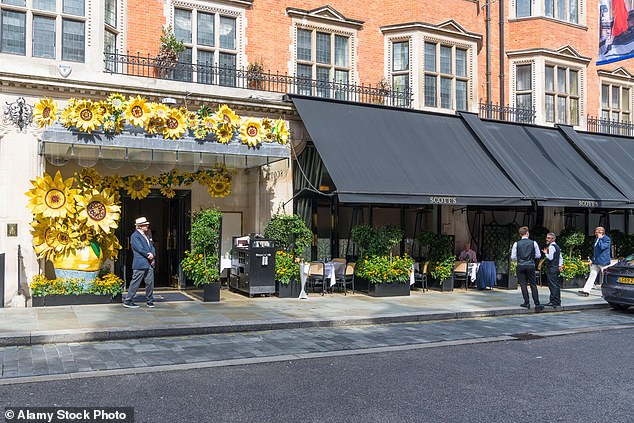
His address was given as 79 Mount Street, which is on currently perhaps the most glamorous street in London, in the heart of Mayfair. It’s home to Scott’s restaurant, pictured
The jury flatly rejected that version of events. He might have come from a remote corner of the earth, but the judge told Al-Gherainiq: ‘You knew perfectly well what you were doing,’ before jailing him for seven years.
The case left a number of puzzling and troubling questions. How did he get here? Who paid for his treatment and the trip? Where did he stay when he came to London?
The last of these is perhaps the key to unlocking this quite extraordinary saga.
Al-Gherainiq, who spent more than a year on remand before going on trial, came to the country sometime in 2023, the first time he had ever left Qatar.
He appeared before Westminster Magistrates’ Court in August of that year following his arrest. His address was given as 79 Mount Street.
Mount Street, currently perhaps the most glamorous address in London, is in the heart of Mayfair. It’s home to Scott’s restaurant as well as George, an ultra-exclusive private members’ club, and Toteme, the chic Swedish fashion brand which has also opened a signature store there.
It is also an area which is sometimes known as ‘Little Doha’ or ‘Qataropolis’ because of the number of multi-million-pound Qatari-owned properties in the highly exclusive enclave.
Number 79 is a six-storey Victorian townhouse that was once the London residence of homeware tycoon David Meller, a former vice chairman of Watford Football Club. When he sold the mansion for more than £40million in 2015, it was among the most expensive domestic property deals in the capital at the time. The stamp duty payment alone was in excess of £4.7million.
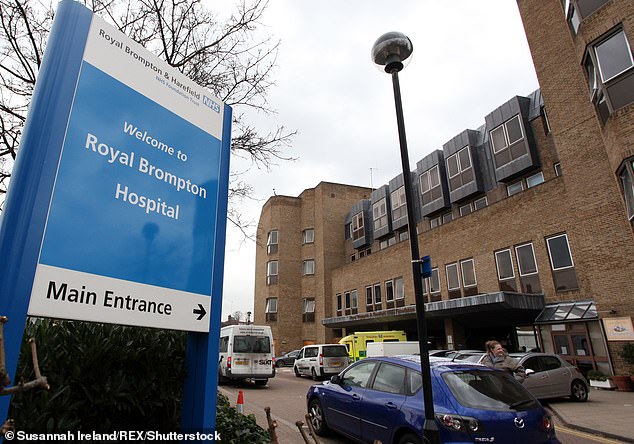
He arrived in the UK to receive treatment for a rare heart condition at a private health unit linked to the renowned Royal Brompton Hospital, pictured, in south-west London
Hard to imagine then what connection an apparently lowly camel herder – and now convicted sex attacker – had with such a place.
The connection, however, is revealed at the Land Registry where the current owners who purchased the property from the Mellers (for precisely £44.25million) are listed as the ‘State of Qatar’, effectively the Thani dynasty, the ruling family of the oil and gas rich Gulf state.
Qatar is one of the few countries in the world that offers near free universal healthcare to all its citizens which includes sending them overseas if certain specialised services are unavailable at home.
Among the foreign cities where Qatar has medical offices is London which is linked to the Hamad Medical Corporation back in the Middle East, Qatar’s main not-for-profit health care provider.
In 2023, 53,000 Qataris applied to receive treatment abroad. Al-Gherainiq was one of them. After a series of medical checks in his homeland, he was flown to London, a Qatari official with knowledge of the case revealed, and was initially given a daily allowance to cover his accommodation costs.
His private housing arrangements fell through at the last minute, though, and the Qatari Embassy stepped in to help him.
No 79 Mount Street, once a family home with a swimming pool in the basement, and now split up into separate rooms and apartments, is managed by the embassy and used for functions and events.
On rare occasions, as in this instance, ordinary Qatari citizens can temporarily be given a room as ’emergency accommodation’.
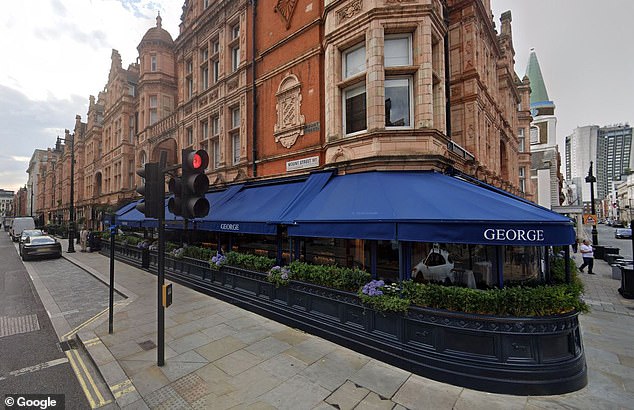
Mount Street is also home to George, an ultra-exclusive private members’ club, pictured
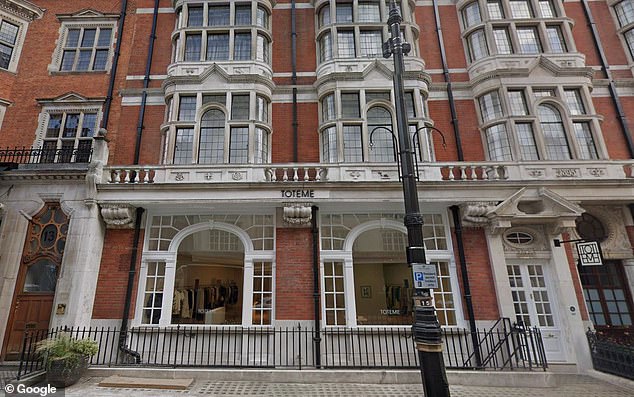
The area, which also boasts chic Swedish fashion brand Toteme, pictured, is sometimes known as ‘Little Doha’ or ‘Qataropolis’ because of the number of multi-million-pound Qatari-owned properties
This is how a camel herder from the desert came to be living on Millionaire’s Row.
‘The Embassy of the State of Qatar in London is aware of a criminal case involving one of its citizens and his subsequent conviction,’ the official said.
‘The Embassy has had no contact with the individual since the time of his arrest and has not provided legal representation or support beyond standard consular assistance, in accordance with international consular norms.’
Al-Gherainiq was evicted from Mount Street after the police contacted the embassy following his arrest.
Locals say residents at the palatial property which occupies 10,000 square feet and is close to the private health unit in Wimpole Street where Al-Gherainiq was a patient, are not long-term, staying a maximum of a few months before moving on.
They are often picked up by luxury cars such as Ferraris, Aston Martins and Lamborghinis.
A team of security guards monitor comings and goings from the property next door, which the Qataris also own.
Relations between the Qatari contingent and neighbours are often strained.
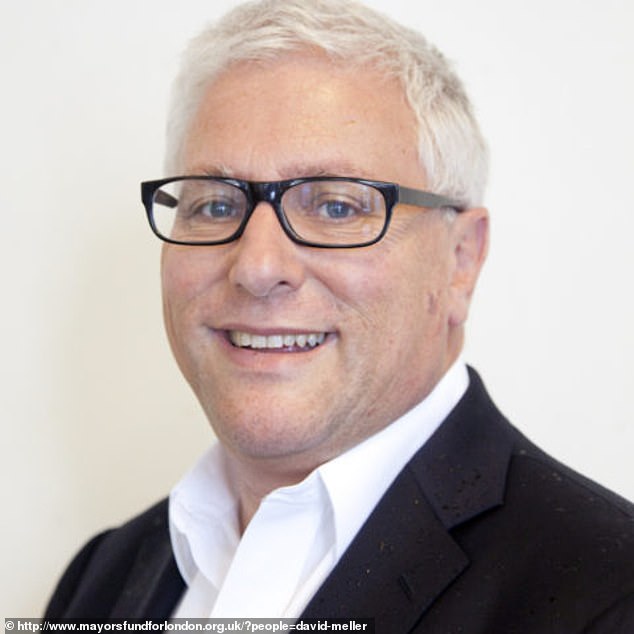
Number 79 is a six-storey Victorian townhouse that was once the London residence of homeware tycoon David Meller, pictured, a former vice chairman of Watford Football Club
‘They think they own the street,’ said a builder carrying out work at a house on the opposite side of the road.
They probably do, given that even a few years ago, a quarter of Mayfair’s 279 acres and more than 4,300 residential properties, were reportedly owned by Qatari investors.
The contrast between this world and the world Nasser Al-Gherainiq inhabited couldn’t be more stark.
He belonged to the Al Murrah tribe – the ‘People of the Camel’ – the largest and most powerful in Qatar, which has strong relations, including marital ties, with the ruling House of Thani.
Qatar might combine Arab culture with Western luxuries epitomised by the bling, glamour and gleaming skyscrapers of the capital Doha, but it remains a deeply patriarchal society.
Polygamy is legal, meaning a Muslim man is allowed up to four wives at once provided he treats them equally.
Opaque male guardianship rules leave women without basic freedoms, such as travelling on their own with women needing permission to travel abroad from the male head of the household, according to Human Rights Watch (HRW).
And only 45 minutes from Doha and its surrounding suburbs is the desert.
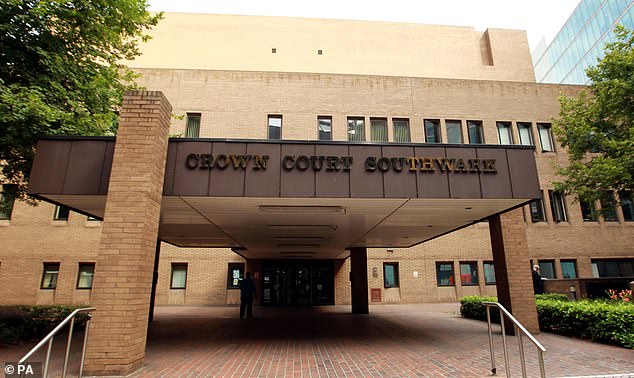
Profound cultural differences, the defence at Southwark Crown Court, pictured, argued, meant Al-Gherainiq did not know how to interact with women
Many of the Al Murrah tribe, which is made up of various clans, have joined government sponsored resettlement programmes in urban areas.
But a hardcore, like Al-Gherainiq, remain in the wilderness, claiming, among other things, historic nomadic rights.
Many elders here still expect women to organise their lives around domestic chores, such as weaving, shearing sheep and crafting goat-hair tents and carpets for which they have become famous.
Al-Gherainiq himself, the court heard, had almost no contact with women outside his family and his only really ‘meaningful contact’ with a female in the family was with his mother.
‘Limited visits to Doha and a preference for a desert environment curtailed his exposure to urban and modern societal norms,’ said Jane Bickerstaff, KC, defending.
It might explain his unhealthy attitude to women but how could it possibly justify dragging a woman into a toilet cubicle and attempting to rape her twice?
‘I was so scared,’ his victim said in a statement read to the court. ‘I felt frozen with fear. I couldn’t go anywhere. Although the incident lasted a few minutes it felt like ages to me… my life has never been the same… I am not the outgoing woman I used to be. I am withdrawn and highly anxious and overly cautious, especially when I’m on my own in an unfamiliar environment.’
The fact this incident happened in a top medical centre is particularly chilling.
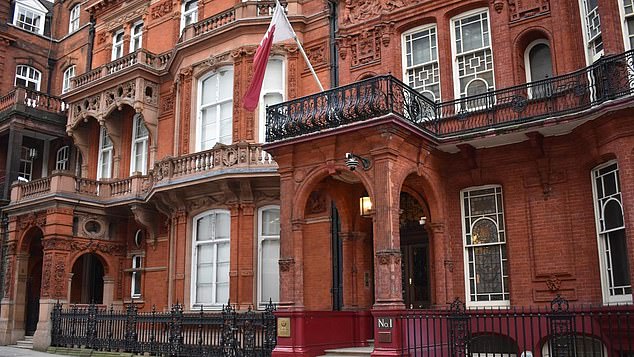
The Qatari Embassy, pictured, which housed Al-Gherainiq after he first arrived in London, has been at the centre of controversy itself in the past
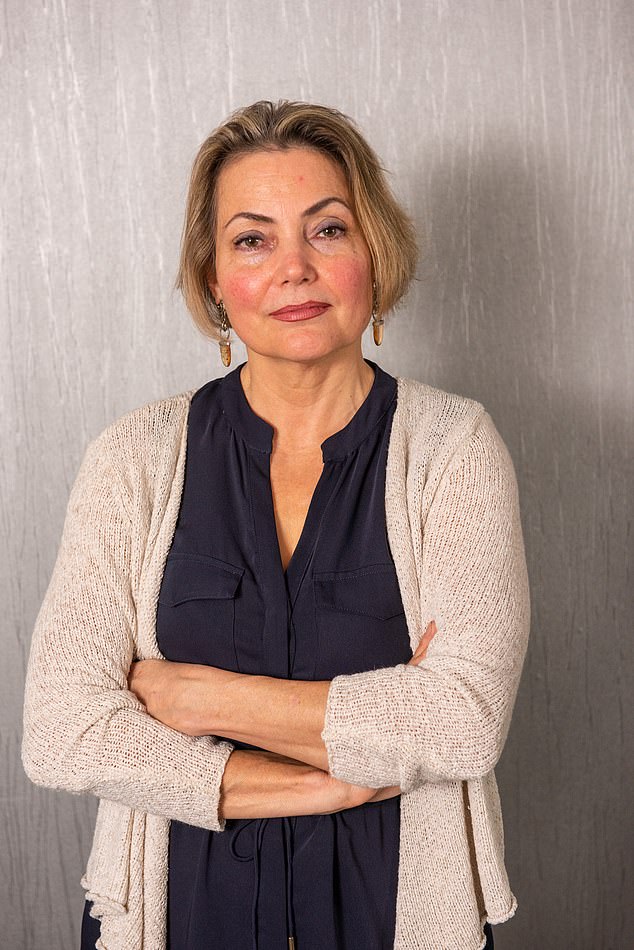
Mother-of-two Deanne Kingson, pictured, a personal assistant, recalled how she was pestered for sex, pressed to host orgies for diplomats and go on holiday to Cuba with one of them
The woman, who is receiving therapy, still has difficulty sleeping and has nightmares and flashbacks. She has withdrawn from work and church, ‘two things she loved’, Judge Adam Hiddleston said.
‘Clearly what you did has had a devastating effect on her,’ he told Al-Gherainiq. ‘There is evidence of severe psychological harm.’ He added: ‘I appreciate the cultural differences between the world in which you grew up and in the United Kingdom.’
But he rejected any suggestion that his sentence should therefore be reduced.
The judge made a recommendation that he should be deported to Qatar ‘as soon as possible’ once he has served his sentence.
In fact, he wants to go back, his barrister said, because ‘there is no reason for him to apply to remain here’.
While it’s not known if Al-Gherainiq got his heart treatment, this statement suggests it is not an outstanding issue.
The Qatari Embassy, which housed Al-Gherainiq after he first arrived in London, has been at the centre of controversy itself in the past and has a history of claiming diplomatic immunity when staff bring legal actions.
One sexual harassment case made headlines in 2019.
Mother-of-two Deanne Kingson, 58, a personal assistant, recalled how she was pestered for sex, pressed to host orgies for diplomats and go on holiday to Cuba with one of them.
She told the tribunal the then deputy ambassador Fahed Al-Mushairi repeatedly tried to sleep with her and then turned his attention to her 19-year-old daughter when she refused, even offering to marry her.
The case was not contested by the Qatari Embassy.
A panel of tribunal judges concluded that Ms Kingson – sacked after rejecting such advances and awarded £388,920 for unfair dismissal – was seen by diplomats as being ‘liable to be willing to engage in sexual conduct with male employees’ because she was not Muslim.
Might this then have also been the reason why camel herder Nasser Al-Gherainiq tried to rape a woman at a private clinic before sexually assaulting her on his first trip outside Qatar?
Additional reporting: Tim Stewart












